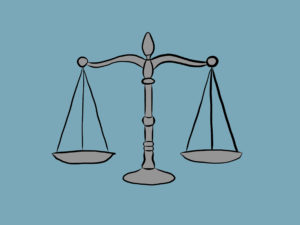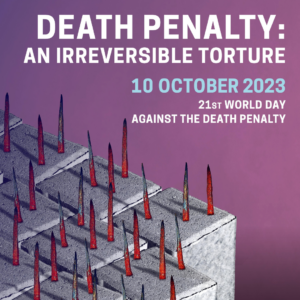
Contradictions in Judicial Support for Capital Punishment in India and Bangladesh: Utilitarian Rationales
- News
- 18 Dec 2019
Article by Professor Carolyn Hoyle (Centre for Criminology, University of Oxford) and Saul Lehrfreund (Co-executive Director, The Death Penalty Project) published in the Asian Journal of Criminology.
This newly published article draws on two original empirical research projects that explore judges’ opinions on the retention and administration of capital punishment in India and Bangladesh. ‘Matters of Judgment’ was conducted by Project 39A (National Law University, Delhi, India) and ‘The Death Penalty Regime in Bangladesh: Exploring Perspectives of Former Judges’ by Dr Muhammad Mahbubur Rahman of The Faculty of Law at the University of Dhaka (Bangladesh) for the Bangladesh Institute of Law and International Affairs (BILIA). Both studies were undertaken in collaboration with the Death Penalty Project, in consultation with Professor Carolyn Hoyle (India and Bangladesh) and Dr. Mai Sato (India).
India and Bangladesh share a common history, and each has developed somewhat similarly since partition. However, while both countries now have relatively low murder rates, India has seen a decline in the rate of executions, while Bangladesh continues to impose death sentences and carry out executions at a higher rate. There have been legal challenges to the death penalty in India, restricting its use to exceptional cases. The same has not occurred in Bangladesh. Yet in both countries, systemic flaws in the criminal process are evident.
The data contained within these studies reveal justice systems marred by corruption, incompetence, abuses of due process, and arbitrary and inconsistent treatment of defendants from arrest through to conviction and sentencing. It shows that those with the power to sentence to death have little faith in the integrity of the criminal process.
Yet, a startling paradox emerges from these studies; despite personal knowledge of its flaws, judges have trust in the death penalty to deter crime and to realise other sentencing aims and feel retention benefits society. This is explained by reference to utilitarian values.
Not only did the majority of judges interviewed express strongly utilitarian justifications for sentencing people to death, in terms of their erroneous belief in its deterrent effect, but some also articulated utilitarian justifications for misconduct in pre-trial processes, suggesting that it was necessary to break the rules to secure convictions when the system was dysfunctional and ineffective.
The studies are the first of their kind in both jurisdictions – shedding new light on the administration of the law and pointing to a crisis within the Indian and Bangladeshi criminal justice systems. A more detailed comparative report by Professor Carolyn Hoyle, providing a comprehensive analysis of each of these studies is forthcoming, and will be published by the Death Penalty Project in 2020.




















